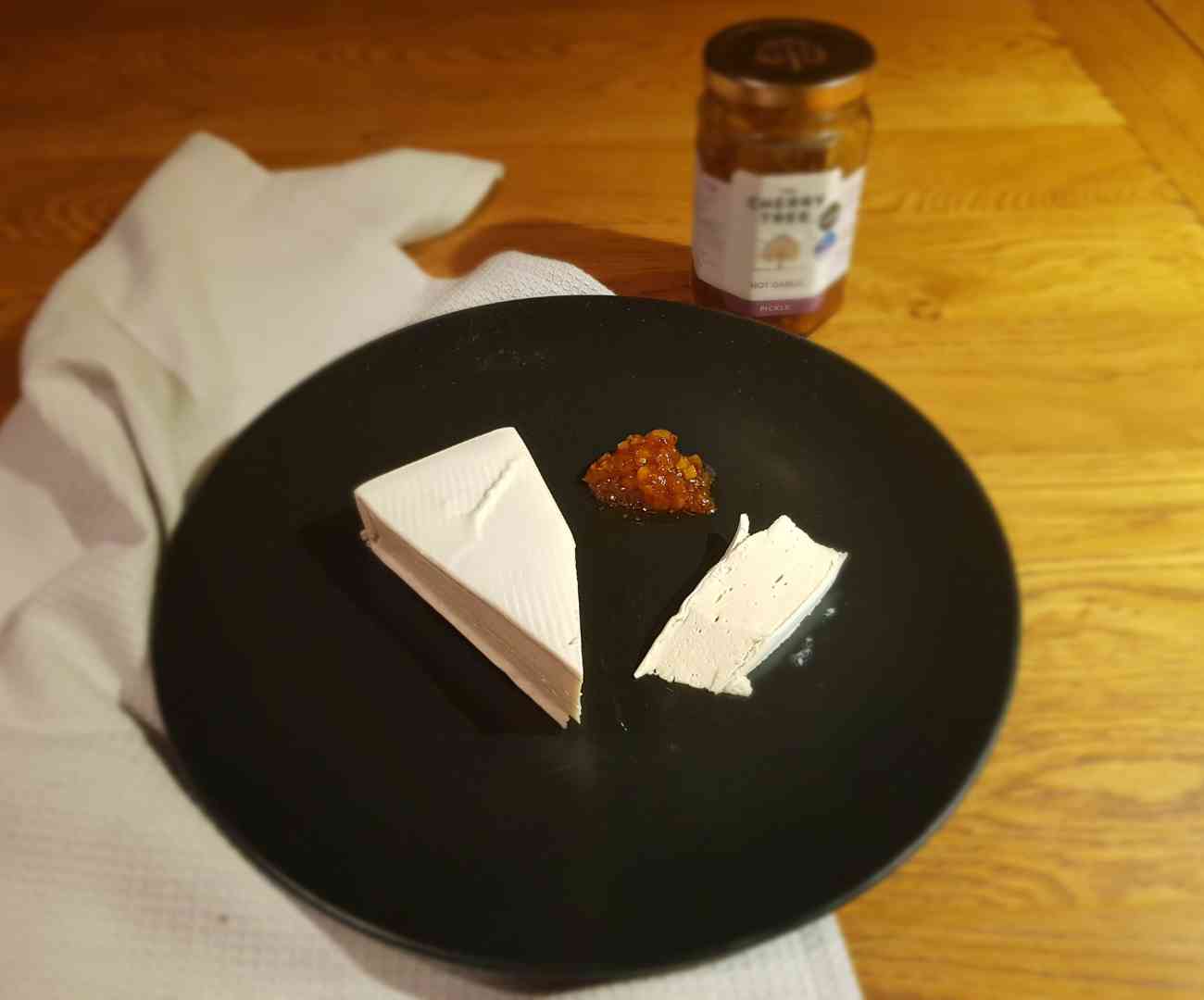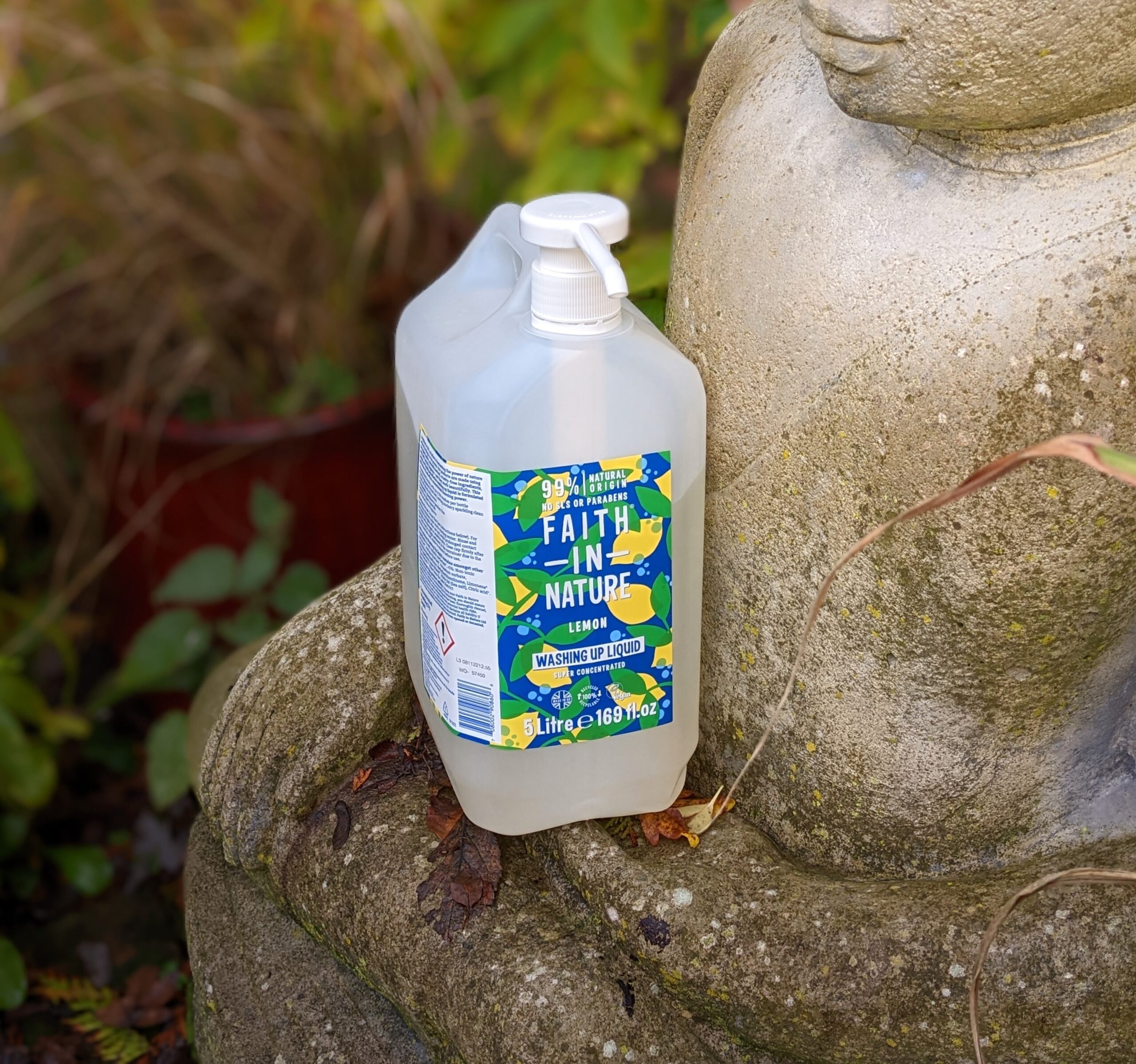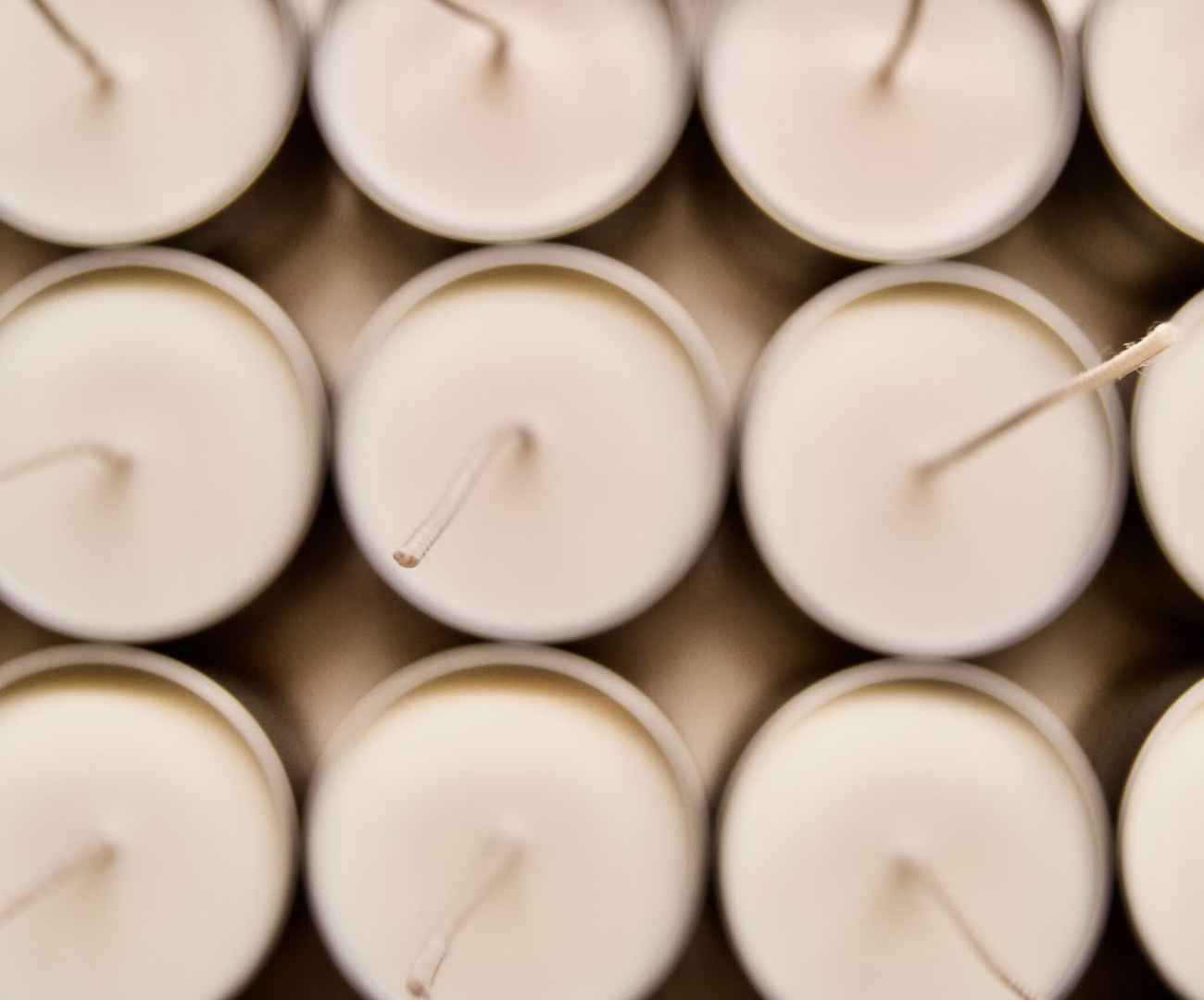Table of contents
You should always try to reduce your bad cholesterol levels – or am I just ‘statin’ the obvious? Little medical joke for you there…but actually, high cholesterol is no laughing matter because it puts you at higher risk of cardiovascular disease and strokes. But I’m a vegan, I hear you say. There’s no way that I could have high cholesterol. The words vegans and cholesterol don’t even go together in the same sentence…do they?
Well unfortunately, I have news for you – I’m afraid they can, and they do!
This article is about my personal journey into the world of cholesterol levels after a recent blood test revealed my own lamentable lipid levels! I cite my amateur research into the subject, and hopefully offer some insight to what I am doing to try and bring it under control, particularly as a vegan. I hope you find it useful, but always consult a medical professional if you are concerned about your health.
Vegans and cholesterol
Because we don’t eat any animal products, many of which are high in saturated fats – think eggs, dairy, fatty meats – there’s an assumption that vegans won’t suffer with conditions like high cholesterol. And for many vegans, that is true. Harvard Health has recently reported on a collation of data from over 30 scientific trials, establishing that participants following a vegan diet for 29 weeks saw their levels of total cholesterol, LDL cholesterol, and apolipoprotein B fall by 7%, 10% and 14% respectively. Amazing, and yet another great reason to be vegan.
Except…it’s not the case for all of us, including me. Don’t get me wrong. I am vegan for the animals and for the planet, and not because of the health benefits. It’s a values-based decision and consequently, I’m a dyed in the wool vegan – if I may use that phrase! But seeing as I do have that lifestyle, it would be nice to reap some of the health benefits.
Anyway. It turns out that vegans can have high cholesterol, and I am talking about the bad cholesterol here (LDL – low density lipoprotein) not the good stuff (HDL – high density lipoprotein), and there are several reasons why that’s possible, including:
- a familial predisposition, meaning that you might have an inherited tendency
- drinking too much alcohol, or smoking tobacco, both of which can impact how your body deals with bad cholesterol
- being overweight
- not being active enough
- eating a lot of (vegan) saturated fats
You can find a more detailed list on the British Heart Foundation website.
How do you know if you have high cholesterol?
Apparently, if you have a familial predisposition, you might see symptoms like small yellow swellings around the corners of your eyelid, or swollen knuckles, according to the British Heart Foundation symptoms list. However, based on all the research I have done for this vegans and cholesterol article, there are not normally any symptoms at all, and the only accurate way of establishing it is to have a blood test. It would therefore make sense to contact your medical practitioner if you have any concerns, or even if you just want it checked, particularly if you fall into one of the categories deemed higher risk as described by the British Heart Foundation.
Once you get the results, you need to check whether your LDLs (non-HDL) and HDLs (low and high density lipoproteins respectively) are within acceptable thresholds. This is not a medical site, and I am no expert, so make sure you are checking in with a clinician or medical professional. However, see below from an excerpt of the thresholds – for full details visit the British Heart Foundation Cholesterol Levels table.
| Result | Healthy level (mmol/L) |
| Total cholesterol | 5 or below |
| HDL (good cholesterol) | 1 or above |
| Non-HDL (bad cholesterol) | 4 or below |
How do vegans lower cholesterol?
There are several ways that you can lower your cholesterol, and it’s basically all the opposites to the list of possible causes above! So, in no particular order:
- stop smoking
- don’t drink alcohol to excess
- get active and exercise
- lose excess weight
- eat less saturated fats
- eat a diet high in fresh fruit, vegetables and low fat protein sources like tofu and tempeh
- take statins, which may be prescribed by your doctor – see ‘Can vegans take statins?’ below
The first 4 bullet points are pretty self-explanatory, and there is not much I can add, so we will look now at the last 3 in a bit more detail.
I would always strongly recommend seeking advice from your medical practitioner or a registered dietitian as well.
Reduce high cholesterol vegan foods

Whether your cholesterol is high or not, most of us could probably do with eating less saturated fat in our diets. Yes, that’s right, even vegans. You might wonder where saturated fats come from in a vegan diet, so here are a few of the villains of the peace. All of the following can have high levels of saturated fats:
- some (not all) plant-based meat products
- tropical oils – coconut oil, palm oil, and shea – and tahini, that fabulous roasted, ground sesame paste
- and – yes, you knew it was coming – pastry
It can be difficult to completely avoid saturated fats, but I do my best to keep ‘bad’ fats to less than 20g per day – the lower the better. So you don’t necessarily have to banish all these foods I guess, but definitely don’t consume too much. Let’s look at those 3 bullet points in more detail:
Plant-based meat products
I am of course talking about burgers, nuggets, chunks – what some people call ‘meat alternatives’. I personally avoid the term ‘alternative’ because I think these are simply products in their own right, but that’s not a topic for this article!
Some brands contain pretty low levels of saturated fats and so from that perspective, can be a healthy option if eaten occasionally. However, some contain high levels of saturated fats, and one such example is Moving Mountains. Their burgers contain a whopping 17.6g of saturated fat per 100g – compare that to Beyond Meat’s burger for example, which comes in at 5.6 g saturated fat per 100g. The upshot is, check the label, and don’t eat plant-based meat products every day anyway!
Tropical oils
I have classified these as tropical, but essentially I’m talking about coconut oil, palm oil and shea. All of these ingredients regularly appear in some vegan spreads and cheeses, although thankfully, there are many new products coming onto the market now based around nuts and healthier fats instead. Again, check the nutrition facts on the label of any product you buy. The difference between something like Flora Plant Butter, which comes in at 45g of saturated fat per 100g, and Pure’s Olive Spread at 11g saturated fat per 100g is significant.
Tahini is also one to look out for, at 10 grams of saturated fat per 100 grams. However, hummus without tahini is unthinkable, and it is such a healthy ingredient in other ways. So, I do still use it, but in small measures!
Pastry
This very much depends on the fats used to make the pastry, and if you make your own, then you are in control of that obviously! However, commercially prepared pastry tends to be relatively high in saturated fat. Once more, check the label, and don’t eat it too often! If you do have pastry, try and keep to other foods that day which don’t contain any saturated fat.
Foods to eat more of

Make sure you are including lots of fresh fruit and vegetables in your diet, along with grains, legumes, nuts (in small quantities), and low fat protein sources like seitan, tofu and tempeh. Heart UK has a great infographic on vegans and cholesterol busting diets – see their Ultimate Cholesterol Lowering Plan UCLP© here
Can vegans take statins?
You could, of course, consider taking statins if that is what your doctor suggests. However, asking whether or not the statins are vegan may well be met with a rolling of the eyes – overworked nhs clinicians don’t need any more pressure on them, let’s face it, and I don’t suppose that information will be at their fingertips.
It appears (according to the internet) that there are vegan statins available at least somewhere in the world, but many of those prescribed in the UK will contain lactose (a sugar from cow’s milk), or ingredients like magnesium stearate which may well be animal-based. I can only suggest that if you do decide to take statins, you check in with the brand that is prescribed to you – start with their website, or maybe even your pharmacist. Some are very helpful, and some not so!
You could also consider vegan alternatives to statins, some of which I have listed below. But be careful, do your research and consult with your doctor – there may be little evidence of their effectiveness, and the impact of long-term use may be unknown:
- plant stanols and sterols – these can be found in products like Flora Pro-Activ. But be careful, it is recommended not to eat more than 3g of plant sterols per day
- Vitamin B3 Niacin – this vitamin can lower LDL cholesterol, but whether it protects from heart attacks and strokes is unknown, and supplements with high levels can cause unpleasant side effects
- RYRE – red yeast rice extract – proven that it can lower LDL, but supplements vary wildly and correct dosage has not been scientifically established
- Oats and pearl barley are a low/no-risk option. They contain beta-glucans which help to bind those pesky LDLs and prevent them from being troublesome. Eat these foodstuffs regularly
Vegan Mum’s experience of high cholesterol

I found out I had high cholesterol purely by chance, having had a blood test for an entirely different reason. And I was genuinely shocked when I saw my elevated LDL levels because it had honestly never occurred to me that a vegan might have high cholesterol. I have a pretty healthy diet, eating plant-based meats very occasionally, and, well, maybe just the odd bag of chips here and there…
But seriously, my diet is filled with grains, legumes, nuts, tofu and tempeh, and I hit the 30 fruits and vegetables a week with ease. So, why?
Why have I got high cholesterol?
When the doctor called me to discuss my results, we initially talked through the possible causes. Of course, the immediate assumption was that I probably eat too much cheese, cream, and fatty meats, so he was a bit stumped when I said that, being a vegan, I didn’t eat any of those things anyway (and a very similar conversation took place afterwards with the practice nurse). There are other reasons for having high cholesterol which we discussed though, one of which was the familial predisposition and I confirmed that my mother (who wasn’t a vegan) did have high cholesterol for many years. So, there is a chance that I may have inherited a tendency for it but who knows – the chances of getting further tests done to find out, with the UK’s NHS under such pressure, is unlikely.
I also no longer smoke, having stopped over 15 years ago, and nowadays, I’m even fairly sensible with alcohol! I’m probably carrying a bit more weight than I should (that can be a contributory factor) and although I walk the dog twice a day, I probably don’t get enough exercise either. But I was going to have to do a bit of detective work to find out more about possible causes. First though, let’s look at the risks associated with this condition.
What are the risks?
Having high cholesterol puts you at greater risk of cardiovascular problems – the higher certain factors are, the greater the risk. We discussed my own increased risk of having a heart attack or stroke, and consequently, I was offered statins. Now, statins are a bit of a miracle drug and there is no doubt they save many thousands of lives. There is a huge amount of research and evidence to support that fact, so I wouldn’t want to discourage people from taking them if their doctor thinks they need them. But I have a streak of stubbornness, combined with a personal dislike of taking medicines. Add to that the difficulty in finding pharmaceutical drugs that are vegan and not tested on animals, and it would have to be a pretty serious situation before I considered taking something.
What am I doing to lower my cholesterol?
I take my increased risk of heart attack or stroke very seriously though – I like not having either of those things! But I wanted to understand if I could make dietary and lifestyle changes to reduce my cholesterol to an acceptable level, and reduce my risk. Statins really are at the bottom of my ‘could do’ list.
Diet
I analysed my diet first to understand whether there were any potential contributory factors, and found several things I was eating that are high in saturated fats:
Regularly: coconut milk, coconut oil, coconut yoghurt and Flora Plant Butter
Less often: pastry, tahini
Occasionally: vegan baked goods, and chips!
As a result:
- I’ve removed nearly all coconut from my diet. I love curries and dals that contain coconut milk so I now use half fat, but have also reduced the amount I put in, as well as making different recipes without coconut
- use oils with good fats – rapeseed, olive etc
- switched to Alpro’s Soya yoghurt
- swapped Flora for Pure’s Olive spread
- reduced my bread intake by batch cooking grains at the weekend for weekday lunches (therefore reducing my intake of spread)
- limit my tahini consumption
I do still eat pastry occasionally (and the odd home made cake) but these really are the exception. Cooking with less oil, even though oils like rapeseed and extra virgin olive oil are mainly good fats, is important for general weight too. So when a recipe says 4 tablespoons of oil (stand up Meera Sodha and Yotam Ottolenghi!) I use 1 at most. I also make more use of the air fryer and have found that tofu is actually ok cooked without any oil at all. Don’t get me wrong, oil gives dishes a rich, unctuous quality, but they’re all still pretty good with less.
I have also started adding 2 ingredients to my diet more regularly: oats and pearl barley. Both are rich in beta glucans, substances that actively help to reduce bad cholesterol levels. During the week, I have overnight oats for breakfast each morning, and I use pearl barley as a base for several lunch and dinner recipes – Rukmini Iyer’s Green Roasting Tin recipe book is a revelation on that front. See my review of it in Vegan Mum’s Best Vegan Cookbooks for Beginners guide.
Exercise
I have added more exercise to my 2 dog walks a day and now go to the gym 3 times a week. This can be expensive, but Pure Gym is great, and reasonably priced. I am now weight training and love it – the thought of just going for the treadmill is unbearable and I’d end up not going. Early summer will also see me return to swimming in the sea and cycling too.
Recording Macros
Quite possibly the most tedious activity you could possibly think of, but I decided to record the nutrient macros of everything I consumed for a month. Looking up the fat content, and saturated fat breakdown, of every single ingredient I ate was life-draining, but such an incredibly useful thing to do. And isn’t the internet a wonderful thing sometimes? Whilst it was a slow process, I identified how much saturated fat I was actually consuming – more than 20g a day when eating my normal vegan diet! So, this activity enabled me to transform my diet because I could see exactly where the saturated fat was coming from. Once I’d identified the villainous ingredients, I was able to make permanent changes to my diet and thankfully, recording macros is no longer required, although I understand some people love recording theirs. Whatever you get a kick out of I guess…
Conclusion
My plan now is to follow my new regime for 6 months, and then have my cholesterol levels checked again. If they are still high, I may have to think again about the statins. But I’m really hoping that with everything I’m doing to reduce my risk, that’s not going to be a dilemma I face.
Research References
Harvard Health – vegan diets may lower cholesterol
Healthline – 5 ways to avoid hydrogenated oil
Heart UK – vegan diets and the UCLP©
Heart UK – diagnosing FH (Familial hypercholesterolaemia)






Leave a Reply